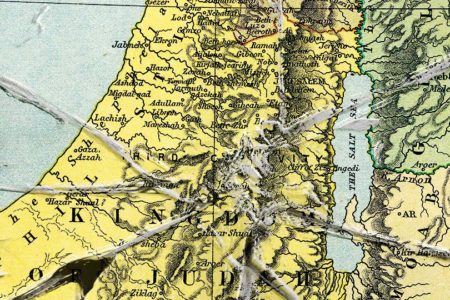Eye on the Middle East Sep/Oct 2016
Representatives from 26 countries and international organizations met in Paris recently in an effort to relaunch stalled peace talks between Israelis and Palestinians. But the initiative is doomed to fail.
The Paris summit brought together officials from the Arab League, Middle East Quartet (comprised of the United Nations, United States, European Union, and Russia), and other states—but not Israel or the Palestinian Authority. It was the first international gathering on the Middle East peace process since the Annapolis (Maryland) Conference in November 2007.
The talks in Paris were part of the so-called French Initiative, a drive by the French government to organize an international peace conference before the end of 2016 to preserve the two-state solution to the Israeli-Palestinian conflict.
“The two-state solution is in serious danger,” French Foreign Minister Jean-Marc Ayrault said. “We are reaching a point of no return where this solution will not be possible.” But the French effort lacks balance. A summit document produced by the French foreign ministry faulted Israel for the impasse, “particularly with regard to continued settlement activities.” It did not blame the stalemate on Palestinian terrorism or on the Palestinian refusal to recognize Israel as a Jewish state.
The French efforts are unlikely to succeed in reviving negotiations, in part because Israeli and Palestinian positions are far apart on many issues, including the future status of Jerusalem.
Palestinian President Mahmoud Abbas has welcomed the French initiative because it would internationalize the peace talks. Israeli officials have rejected the plan for the same reason; they believe efforts to internationalize the negotiations will allow the Palestinians to dig in their heels and resist direct talks with Israel.
Palestinian Saeb Erekat has confirmed Israeli concerns. Writing in Le Monde, Erekat argued that the long-standing method of bilateral talks had failed and that the Palestinians were being forced to move to a “multilateral framework” in which the international community would impose a solution on Israel.
The director-general of Israel’s foreign ministry, Dore Gold, said the French initiative is doomed to failure: “One hundred years ago, two officials by the name of Mark Sykes and François Georges-Picot tried to dictate a new order in the Middle East. It was at the apex of the era of colonialism in our area. This effort utterly failed then and will completely fail today.”
Gold added that the Paris summit had “made the Palestinian positions more extreme, and made it more difficult to resume direct talks.” He said what is needed is a diplomatic approach “that is based on the idea of supporting direct talks, not replacing them.” He added, “One of the critical questions of the conference is whether it increases the Palestinian incentive to negotiate. And from what the Palestinians are saying, whether it is Erekat or [PA Prime Minister] Rami Hamdallah, it appears the French initiative is not making them more cooperative.”
Addressing the European Parliament, Israeli President Reuven Rivlin said that now is not the right time to push for peace: “Currently, the practical conditions, the political and regional circumstances, which would enable us to reach a permanent agreement between us—the Israelis and the Palestinians—are failing to materialize.”
Even if the French initiative fails, momentum is building to internationalize the Palestinian issue. The Obama administration has indicated that it is open to action by the UN Security Council to impose the outlines of a two-state solution on Israel before the next U.S. president takes office. Israel will need to engage in deft diplomacy to avoid being caught between a rock and a hard place.








